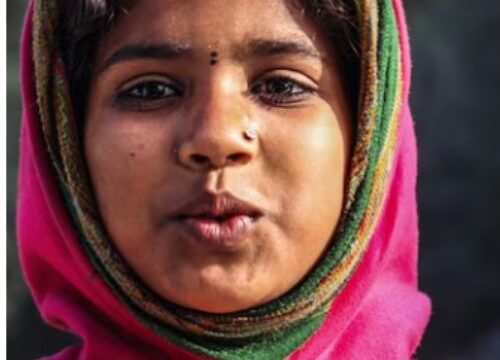Menstruation is a natural and healthy process that marks the transition from childhood to womanhood. However, the lack of access to menstrual hygiene education and facilities in many parts of the world can have serious implications for the health, education, and overall well-being of young girls. Poor menstrual hygiene can lead to various infections such as urinary and reproductive tract infections. Some of the menstrual disorders, such as endometriosis, can contribute to infertility.
This article will explore the importance of menstrual hygiene for young girls, the challenges they face, and the steps that can be taken to ensure that they have access to the information and resources they need to manage their periods safely and with dignity.
What is Menstrual Hygiene?
Menstrual hygiene refers to the practices and products that are used to manage menstrual bleeding. This includes using clean and absorbent materials such as sanitary pads. It also involves proper washing of the genital area and hands to prevent infection.
Why is Menstrual Hygiene Important?
The importance of menstrual hygiene cannot be overstated. Proper menstrual hygiene is critical to the health, well-being, and dignity of young girls. Inadequate menstrual hygiene can result in infections, discomfort, and stigmatization. Furthermore, it can negatively impact education and social participation, causing girls to miss school or abandon their studies entirely.
Unfortunately, menstruation remains a taboo subject in many parts of the world. As a result, young girls may feel ashamed or embarrassed to talk openly about their periods. This can lead to misconceptions and anxiety surrounding menstruation, further compounding the difficulties they face.
Challenges Faced by Young Girls
Access to Menstrual Products: In many parts of the world, access to menstrual products is limited or non-existent. Young girls may resort to using rags, leaves, or other unsanitary materials, which can lead to infections and discomfort
Stigma and Shame: Menstruation is still considered a taboo topic in many parts of the world, and young girls may feel ashamed or embarrassed to discuss their periods openly. This can lead to misinformation and fear around menstruation, which can further exacerbate the challenges they face.
Lack of Facilities: in many parts of the world, schools and public facilities do not have adequate facilities for menstrual hygiene. This can make it difficult for young girts to manage their periods in a safe and dignified way
Steps to Ensure Menstrual Hygiene for Young Girls
Education: Providing young girls with accurate and age-appropriate information about menstruation is essential to combat misinformation and stigma. Education can help girls understand their bodies, dispel myths and misconceptions, and build confidence around managing their periods.
Access to Products: Ensuring that young girls have access to affordable and safe menstrual products is essential to promote good menstrual hygiene. Governments, NGOs, and other stakeholders can work together to provide menstrual products to schools and communities, as well as develop sustainable and eco-friendly alternatives.
Facilities: Providing safe and clean facilities for young girls to manage their periods is essential for their health and dignity. This can include separate toilets and washing facilities in schools and public spaces, as well as access to clean water and soap.
Saanchi is making a positive impact on menstrual health and hygiene by providing sustainable sanitary pads and promoting awareness and education in the community. By breaking down taboos surrounding menstruation and promoting menstrual hygiene, they are working towards creating a brighter future for all. Saanchi is also playing a significant role in overcoming various issues related to differently-abled children, and marginalized communities by providing them with education and skill development programs. These programs are designed to equip individuals with the necessary skills and resources to lead independent and fulfilling lives, thereby creating a self-reliant and inclusive community


